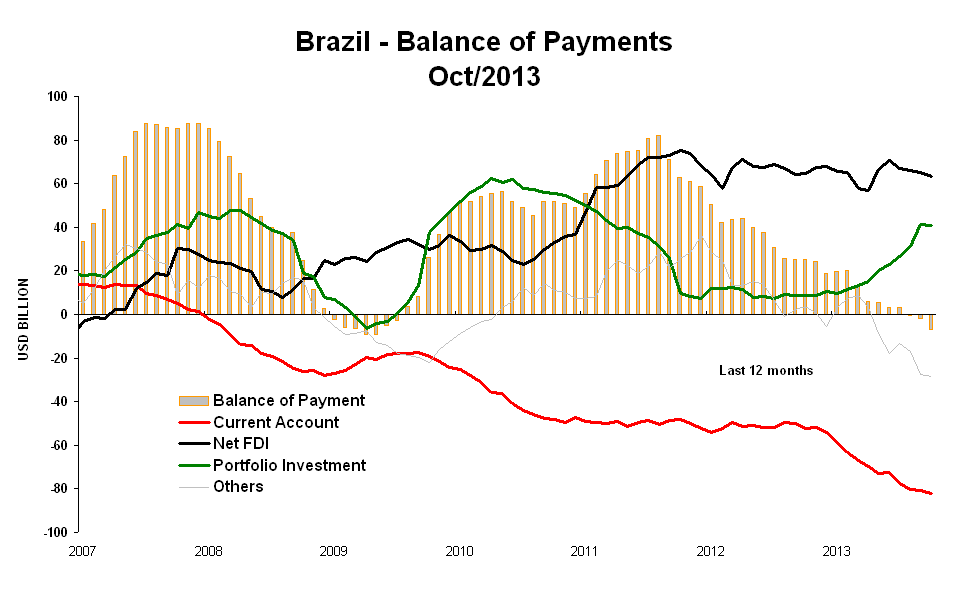Relationship between accounts
Syllabus: Explain that the current account balance is equal to the sum of the capital account and financial account balances(see the appendix, “The balance of payments”).
The IB exams will use a standard structure for the balance of payments. This will be as follows:
| Credits (+), Debits (-) | $m (2011) | |
|---|---|---|
| Current account | ||
| 1 | Exports of goods | 555 |
| 2 | Imports of goods | -635 |
| 3 | Balance of trade in goods | -80 |
| 4 | Exports of services | 185 |
| 5 | Imports of services | -215 |
| 6 | Balance of trade in services | -30 |
| 7 | Income receipts (investment income) | 225 |
| 8 | Income payments (investment income) | -215 |
| 9 | Net income receipts (investment income) | 10 |
| 10 | Current transfers (net) | -35 |
| 11 | Net income flows | -25 |
| 12 | Current account balance | -135 |
| Capital account | ||
| 13 | Capital account transactions (net) | 25 |
| Financial account | ||
| 14 | Direct investment, net | 55 |
| 15 | Portfolio investment, net | -15 |
| 16 | Reserve assets funding | 45 |
| 17 | Errors and omissions | 25 |
| 18 | Capital and financial account balance | 135 |
Syllabus: Examine how the current account and the financial account are interdependent.
The balance of payments should balance. All inflows of money into the country should be matched by an equivalent outflow (across all the accounts - current, capital and financial). In practice, this is simply not going to happen. There are so many transactions and they are so complex that it would be impossible to record them all accurately. As a result a figure is added in for errors and omissions to ensure that the balance of payments balances.
This means that the relationship between the accounts is as follows:
Current account = capital account + financial account + errors and omissions
Letīs Do Some Economics
 L
L
Has there been a Current Account deficit or surplus over the time period shown?Define Foreign Direct Investment (FDI)
Has there been a Financial account surplus or deficit over the time period shown?
Why do you think there was so much investment in Brazil during this period?
